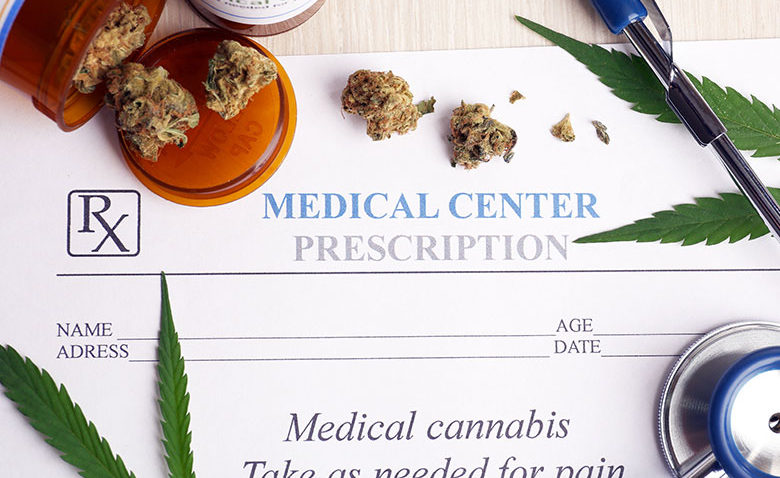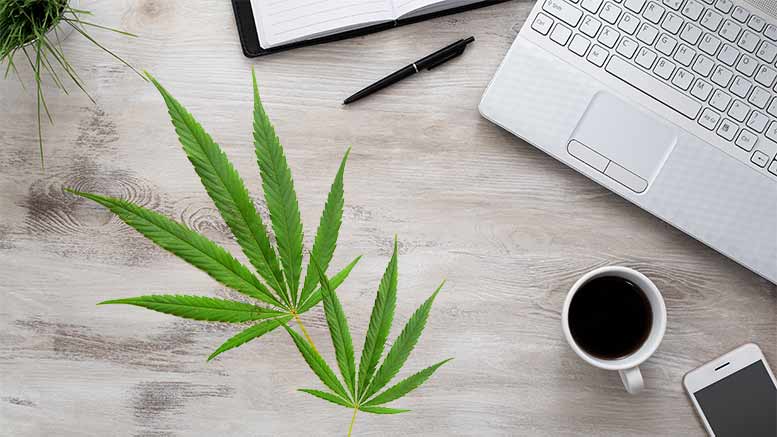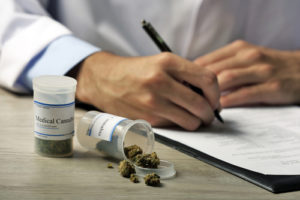Not all physicians can, or are willing to recommend medical cannabis for their patients. Our registration company has worked to find DEA certified physicians with the background knowledge, and expertise needed to perform Medical Marijuana Recommendations. The state has strict criteria for doctors who are willing to write Medical Marijuana Recommendations for patients. Your doctor must be an MD or DO, and DEA registered with no license restrictions or conditions. We pride ourselves in finding physicians who not only meet the state standards, but go above and beyond to provide unmatched follow-up care and medical resources to all of our patients. We want to provide you the best care possible and our doctors can help get your life back to where you want it to be. Make this process easy and let us take care of all your Medical Marijuana needs. When you see our doctor you must have a qualifying condition in order to receive a Florida Medical Marijuana Recommendation. Medical documentation is helpful but not necessary if you are over the age of 21. The condition must be severe and/or debilitating in nature or else the doctor cannot recommend Medical Marijuana. The physician will need to know certain things about your condition, how long it has been present? How was it diagnosed? How does is affect your daily life? What brought your condition about? Please have either medical records that document the answer to these questions present at your appointment, or know your past medical & alcohol history so you may give a concise and complete overview of your medical history.
You can qualify with PTSD, Depression, Anxiety, BiPolar, Chronic Pain and more. It is important that you have been seen by a medical professional for your condition at some point in your past. Your Florida Medical Doctor cannot diagnose your condition, but only evaluate it to determine whether Medical Marijuana is right for you. Once you see the doctor, our cannabis professionals will notarize your paperwork and will have your documentation ready to mail off to the state. Your marijuana license may take a while to be approved by the state. In the meantime, we can recommend dispensaries and caregivers that can take care of all of your Medical Marijuana needs. We only recommend state approved dispensaries that are discreet and professional. Dispensaries and medical professionals all over recommend us as your one stop to finding a medical marijuana doctor location in Florida and Registration Company because of our unparalleled service and care for our patients. Our doctors look forward to helping you achieve the highest grade of health through cannabis therapy. We look forward to you becoming a part of the All Natural MD community! Let us help you take the steps to living a healthy life through the use of Medical Marijuana.
A large group of All Natural MD marijuana cards and doctors, including a former surgeon general and faculty members at some of the nation’s leading medical schools, has formed the first national organization of doctors to call on states and the federal government to legalize and regulate the use of marijuana in the interest of public health. If you have one or more of the state approved conditions and the condition is chronic in nature, and/or is debilitating, call us today to set up an appointment! We can assist you in obtaining your state issued Medical Marijuana Card. Our physicians are DEA certified and state approved to help you qualify for a medical marijuana license in Florida. Once our doctors approve you for medical marijuana, our onsite notary will assist you in completing all state documentation necessary to officially become a Florida medical marijuana patient. We not only provide expert education on becoming an medical marijuana patient, but we also provide direction in finding a dispensary or caregiver that will best suit your needs. Contact our friendly staff today to learn what steps you now need to take to begin your medical marijuana treatment today.
A group is endorsing the legalization of marijuana for adult recreational use, a break from the position of the American Medical Association, the largest organization of doctors in the country. Citing hundreds of thousands of annual marijuana arrests, racial and economic disparities in marijuana enforcement, and the role of prohibition in keeping marijuana prices high and lucrative to violent drug dealers, the physicians say that creating a legal and regulated marijuana market is the best way to ensure public safety, combat the illicit drug trade and roll back the negative consequences of strict enforcement policies on disadvantaged communities.
The emergence of the group comes at a crucial moment in the national debate over marijuana legalization. More than 60 percent of the public now says that it supports marijuana legalization. Support for allowing medical use of marijuana with doctors’ supervision is closer to 90 percent. Over 35 million Americans use marijuana recreationally each year, according to the latest federal statistics. Many national lawmakers have called on federal authorities to revisit policies toward marijuana that have remained essentially unchanged for nearly 50 years in oppositions and researchers generally agree that marijuana use is less harmful to individuals and society than the use of other common drugs, like alcohol and tobacco, about 9 percent of people who begin using as adults become dependent on the drug, and heavy use can be especially harmful to the developing brains of adolescents. If you’re going to make something against the law, the health consequences of that use have to be so bad to make it worth creating criminal consequences. That was never true of marijuana.
Indeed, in 1977, the objected to the overly strict regulation of marijuana, as it was then used as a treatment for a number of medical conditions. The Association was worried that prohibition of marijuana would “deprive the public of the benefits of a drug that on further research may prove to be of substantial value.”
After the passage of the Marijuana Tax Act just wasn’t that well-known among doctors. Many doctors were unaware that the drug essentially outlawed by the Marijuana Tax Act was the same substance they knew as cannabis,” which they used to treat a variety of ailments from corns to poor appetite. In subsequent years, physicians were just as susceptible to lurid media reports about the supposed dangers of marijuana use and the “Reefer Madness” era as anyone else. Like most mainstream medical groups, many are now opposed to the outright legalization of marijuana, calling it a “dangerous drug” and “a public health concern.” But the group’s stance has evolved in recent years. It recently added language to its position statements calling for “the modification of state and federal laws to emphasize public health based strategies,” rather than punitive, incarceration-based measures. The group now encourages research into the drug, and has called on federal authorities to make it easier to do so.
Doctors often find themselves acting as mediators between patients who want access to marijuana for medical purposes, and a federal bureaucracy that still considers the drug illegal for all purposes.
Florida Medical Marijuana Doctors are put in the awkward position with respect to individuals who ask for a marijuana recommendation, but otherwise would be perfectly happy purchasing the drug in a retail environment,” Nathan said. “We believe that the best way to improve the situation is to enact full legalization with smart regulation. That would more clearly separate medical from personal use.”
Not all medical professionals are happy about relaxing attitudes toward what they see as a dangerous, addictive drug. The notion of doctors advocating for marijuana legalization is “totally idiotic,” who served as the first director of the National Institute on Drug Abuse. “The idea that we cannot manage the health problems related to marijuana because it’s illegal, that doctors are somehow inhibited from dealing with marijuana use and marijuana problems, is completely wrong.”
“The idea that legalizing is going to stop the illegal market is equally stupid,” he added.
Others thinks that the current legal status of marijuana is sufficient to address the risks associated with marijuana use, and that punitive measures for drug sellers and users can be a powerful tool for helping at-risk people get treatment. “The criminal justice system is a wonderful vehicle for getting people into treatment and recovery,” he said.
Other physicians would like to see marijuana use decriminalized, but would not go so far as to make the drug completely legal for adult recreational use. An addiction-medicine physician notes that we already have two legal psychoactive drugs, alcohol and tobacco. “What is the problem for which having a third class of legal drug is the answer?” he questioned.
Still, he points out that there’s a lot of diversity in the medical field. “People are of their time and of their culture and doctors are no different,” he said. “There are physicians who are Republicans, Democrats, Independents — they pretty much they reflect the population. There are all kinds. The fact that there’s a group of physicians now coming out in favor of cannabis legalization as the only effective way to regulate, it is no surprise.”
Much of the discussion around marijuana legalization, among doctors and the general public alike, hinges on different assessments of the same data showing the risks and benefits of changing marijuana laws. Groups like the are concerned that legalization would lead to more widespread use of the drug, which would invariably mean greater prevalence of the negative health consequences associated with its use, like dependency and some mental illnesses that may be exacerbated by the drug’s use.
But groups who favor legalization, point out that negative outcomes arise from the current system of prohibition, too. They say that the presence of a large black market, the stigmatization of individual users, and the potentially life-ruining effects of a marijuana conviction, are steep prices to pay for the nominal reduction in overall use that comes with prohibition. Get Started.



